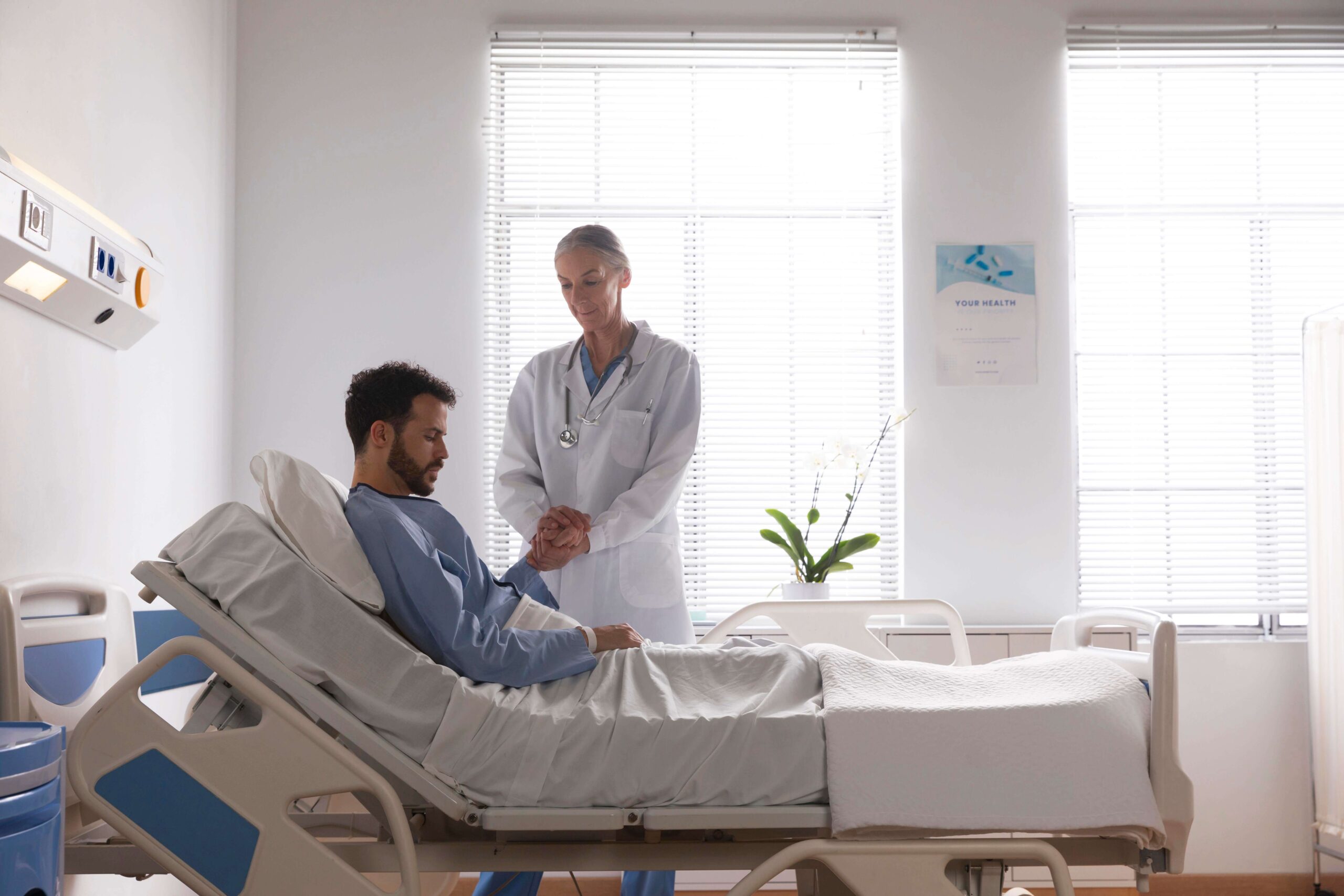What is a sphincterotomy?
Lateral internal sphincterotomy is a surgical procedure performed to treat anal fissures. An anal fissure is a tear in the tissue lining the anus, and is associated with pain and bleeding during bowel movements. The internal anal sphincter muscle is always under tension, but increased pressure can lead to the development of anal fissures or prevent an existing fissure from healing. If your physician has recommended a sphincterotomy, then speak to a GI Alliance gastroenterologist to have all your questions answered.

Who should get a spincterotomy?
This procedure is performed on patients with anal fissures. The symptoms of anal fissure can include:
- Pain during bowel movements
- Itching
- Bleeding
Some anal fissures may be able to heal on their own or with home treatments. Lateral internal sphincterotomy is indicated when conservative treatment measures fail to heal the fissure.
How does a sphincterotomy work?
The sphincterotomy is performed on an outpatient basis under local or general anesthesia. Your doctor makes a small incision in the internal anal sphincter. The incision in the muscle reduces the pressure, allowing the fissure to heal. The incision is either stitched with dissolvable stitches or is left open to heal naturally. As with any procedure, lateral internal sphincterotomy may involve certain risks and complications such as incontinence of gas or stool, pain, bleeding, infection at the incision site, and difficulty passing urine. Please discuss all the risks and benefits of this procedure with your GI Alliance provider.

Healing for anal fissures
Anal fissures can heal on their own, but if you have an anal fissure that is not healing and is not responding to more conservative treatment efforts then a sphincterotomy may be able to help you. If you have additional questions about the sphincterotomy or any other treatment method for anal fissures, please contact your GI Alliance physician. As the nation’s leading physician-led network of gastroenterologists, GI Alliance aims to provide patient-centric care for GI tract conditions like anal fissures. To learn more about the sphincterotomy process, please contact a GI Alliance location near you.
Sphincterotomy FAQs
How effective is sphincterotomy in treating anal fissures?
Sphincterotomy is highly effective in treating chronic anal fissures, with success rates typically exceeding 90%. This surgical procedure alleviates pain and promotes healing by reducing tension in the anal sphincter, which improves blood flow to the fissured area. Most patients experience significant relief from symptoms and a rapid improvement in their condition following the procedure, making it a reliable option for those who have not responded to conservative treatments.
Will I need to stay in the hospital after a sphincterotomy?
Typically, a sphincterotomy is performed as an outpatient procedure, which means you won’t usually need to stay overnight in the hospital. Most patients can return home the same day once the effects of any sedation have worn off. However, your doctor will provide specific instructions based on your individual case and the complexity of the surgery. Recovery can generally be managed at home, allowing you to resume normal activities within a few days, although full healing might take a few weeks.
What should I expect in terms of pain management after a sphincterotomy?
After a sphincterotomy, managing pain is an important part of the recovery process. Your doctor will likely prescribe pain medication to help control any discomfort following the procedure. Additionally, sitz baths (warm water baths focused on the perineal area) are commonly recommended to relieve pain and promote healing. It’s essential to follow your doctor’s guidance on pain management closely to ensure a smooth and comfortable recovery.
